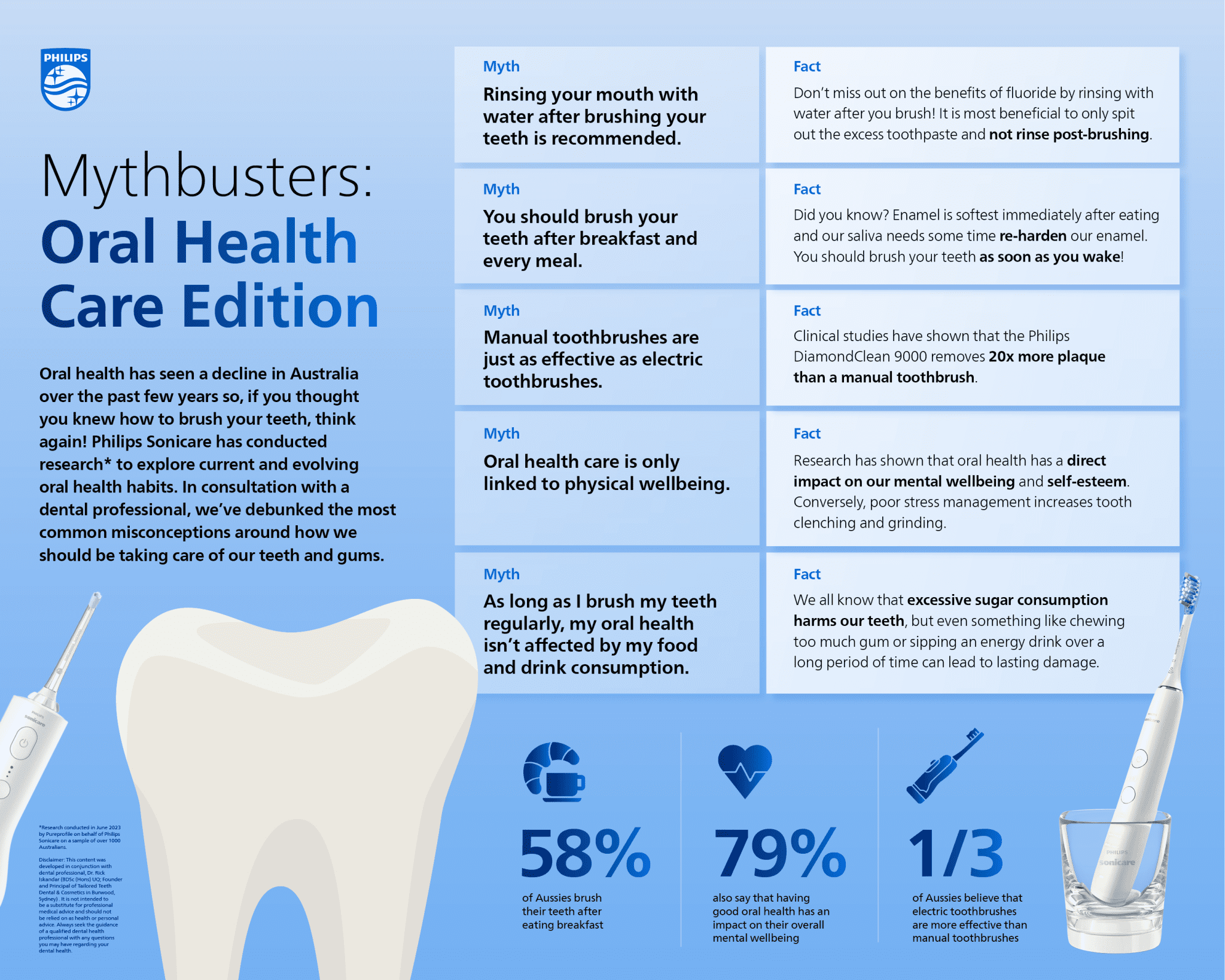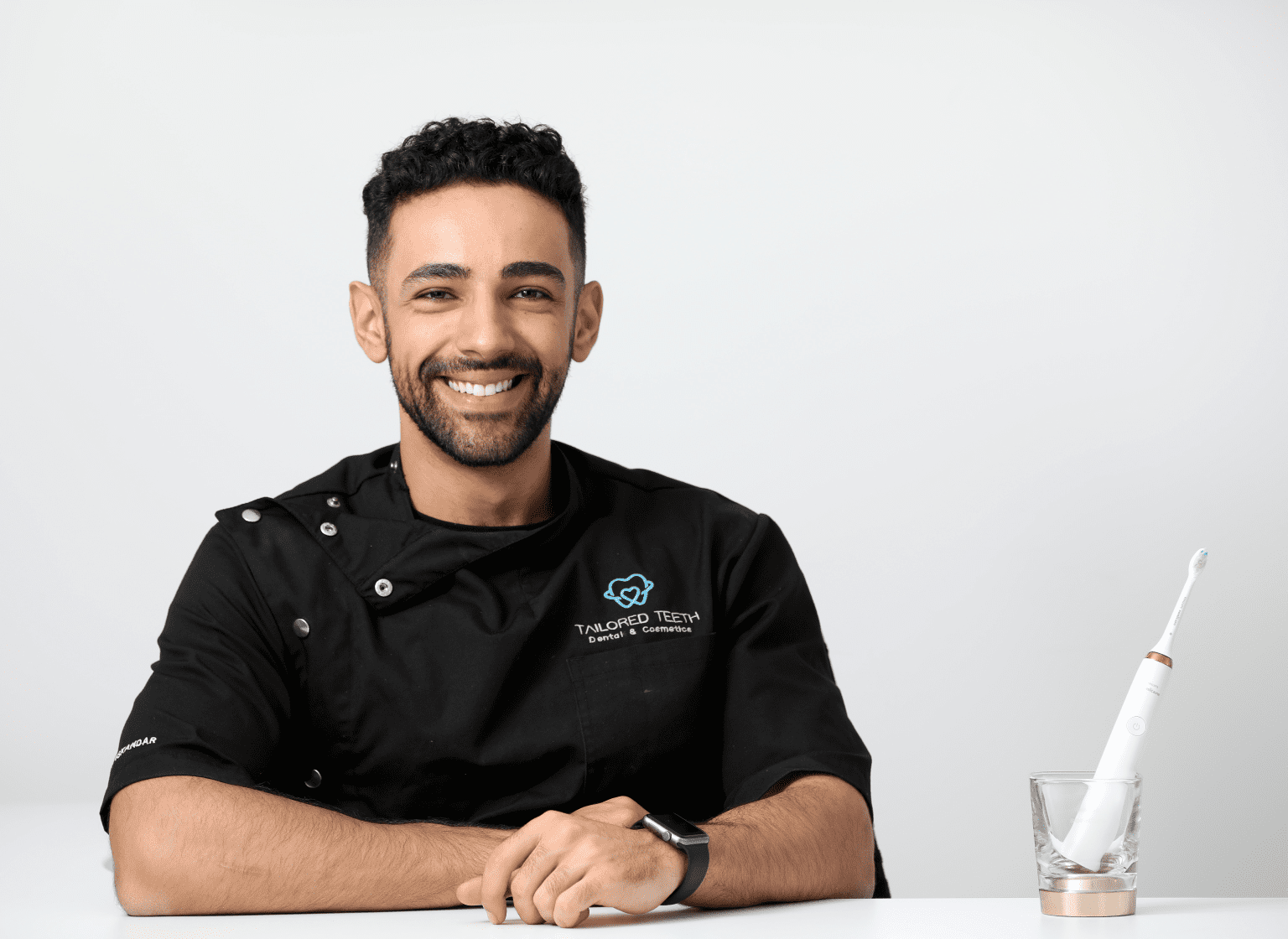The pandemic did a lot of damage to people’s routines, a lot of healthy habits at home and appointments with professionals were neglected or unable to be kept. The loss of regularity with daily routines meant that a lot of people fell off the self-care bandwagon. I still see patients on a regular basis that tell me this is the first appointment they’ve had since COVID, whether they were regular attendees prior or otherwise.
Sometime during 2022 we all switched back on – harder, faster and more efficiently than ever before. Compared to pre-pandemic Australia, our phones and computers were more powerful, many of us were still working from home or in a hybrid-work situation, and there were demands on our time like never before – our tolerance for inefficiency had permanently decreased. This is reflected statistically – recent research by Philips Sonicare* revealed that almost 40% of Australians report that daily oral health practices are a chore, many report that attending a dental appointment takes too much time, even more are scared to attend. Sitting on my side of the chair, I can empathise, having to trek to a dental clinic for an appointment seems archaic and inefficient in our digital age.
Cost-of-living issues have also put immense financial pressure on households with significant interest rate rises and price increases almost everywhere you look, I think this is also contributing to a decline in dentist visits. This is supported by research; two-thirds of Australians (67%) concerned about the cost of visiting the dentist and/or dental procedures and just over half (51%) are not visiting the dentist as frequently due to cost. Accessibility is also an issue, with 1 in 5 Aussies saying they struggle to access dental care near them with almost a third (28%) saying they find it difficult to schedule a dental appointment.
The long-term impact
While financial concerns won’t directly cause decay or gum disease, increased stress hampers our body’s ability to heal, makes us more prone to infections, and increases the incidence of tooth clenching and grinding – all of which will certainly manifest as an increased likelihood of pain, sensitivity and discomfort in the teeth, gums, jaw joints and facial muscles.
Irregular attendance at dental appointments is a roll of the dice, I can’t deny that sometimes we are pleasantly surprised, and patients are unaffected by the time spent away from the dental chair. In my experience, however, patients who do not attend dental appointments regularly will usually experience one of two typical scenarios. The first group are patients that become attenders only for emergencies, these patients will often struggle to stay abreast of the painful, expensive and unexpected dental emergencies that arise, sometimes for years on end, usually resulting in frequent extractions of teeth that are unsalvageable. The second group will usually attend voluntarily after an extended leave of absence, perhaps with only a minor complaint, and are diagnosed with a laundry list of problems that will be extremely invasive and expensive to fix comprehensively.
In terms of maintenance of dental health, there is no substitute for the fundamentals – brush twice a day with the best toothbrush you can afford, floss once a day and see your dentist every six months for a check and clean. Many clinics have seen a decline in attendance due to the cost barrier associated with seeing a dentist, especially because most dental procedures in Australia are privately funded.
Some clinics have chosen to adapt to this change – Smile on Clinics, a fast-growing group of clinics across NSW, of which my practices, Tailored Teeth Burwood and Mona Vale are members, have tried to adapt to this consumer demand, offering capped-price or no-gap initial appointments that allow patients to have diagnostic hygiene treatments for a very reasonable fee to ensure equitable access to high-quality dental care for everyone.

4 tips for improving your oral health
1. Have the right tools
There are many ways that Aussies can take care of their smile but consistency is king – if you use a good quality electric toothbrush, a quality fluoride (or even fluoride/peroxide) toothpaste, and clean between your teeth daily, in the absence of undiagnosed disease processes, you will experience stability in your dental health.
A good quality electric toothbrush has high-quality features like soft nylon bristles, an electric motor, pressure sensor and timer – together these can solve almost every problem that I see that cause patients’ dental problems even if they are brushing regularly enough.
Clinical studies show, for example, that the Philips DiamondClean 9000, coupled with a C3 Premium Plaque Control brush head removes 20x more plaque than a manual toothbrush. This equates to less dental disease and a better, fresher mouth environment with no special brushing techniques required, and fewer limitations for people with disabilities or manual dexterity issues. Currently it costs about the price of having one large composite (plastic) filling done once – if there was ever a good investment for your teeth, that’s it.
2. Forget the oral health myths
There are also a lot of myths and misconceptions about our oral health that we believe and could change up. For instance, most Australians (58%) are brushing their teeth after they eat breakfast. While I completely understand the logic, brushing should be done as soon as we wake, and the last thing before we go to sleep. Brushing less than 30 mins after a meal on a regular basis encourages toothbrush abrasion as enamel is softest immediately after eating a meal, and our saliva needs some time to neutralise the acids and re-harden our enamel.
Another one is how many people are rinsing their teeth with water after they brush. More than a third of us are missing out on the beneficial effects of toothpaste by doing this. Fluoride in our toothpaste takes some time to soak in and harden our enamel so I’d recommend only spitting out the excess toothpaste after you brush.
3. Positivity is key
I also think that mindfulness practices such as meditation or prayer on a daily basis, particularly in the evening, is an important part of maintaining your dental and mental health. The research has shown that the majority of Australians (79%) say that having good oral health has an impact on their mental wellbeing.
Mindfulness practice is free and brings, with regular practice, numerous benefits. A busy, overstimulated mind immediately prior to bed (like doom scrolling before you go to sleep) has been linked to higher levels of dopamine and increased nocturnal bruxism which introduce cracks into the enamel and increase the likelihood of decay and cracked tooth syndrome.
4. Get back to basics
When it comes down to it, there is no substitute for the fundamentals – brush twice a day with the best toothbrush you can afford, floss once a day and see your dentist every six months for a check and clean. It doesn’t have to be anything special.
We’ve seen a decline in attendance due to the cost barrier associated with seeing a dentist, especially because most dental procedures in Australia are privately funded. Some clinics have chosen to adapt to this change – Smile on Clinics, a fast-growing group of clinics across NSW, of which my practices, Tailored Teeth Burwood and Mona Vale are members, have tried to adapt to this consumer demand, offering capped-price or no-gap initial appointments that allow patients to have diagnostic hygiene treatments for a very reasonable fee to ensure equitable access to high-quality dental care for everyone.
*Research conducted in June 2023 by Pureprofile on behalf of Philips Sonicare on a sample of over 1000 Australians.
About Dr Rick Iskandar
Dr Rick Iskandar is the passionate Principal Dentist at Tailored Teeth Burwood and Mona Vale. Dr Rick provides dental care at the highest possible level, drawing on cutting edge procedures and techniques from around the globe to provide an exceptional experience for is patients. Dr Rick has been nominated and featured in the ‘Leading physicians of the World’ publication. He works tirelessly to provide his patients with the highest standard of clinical treatments, safety, and patient experience.








